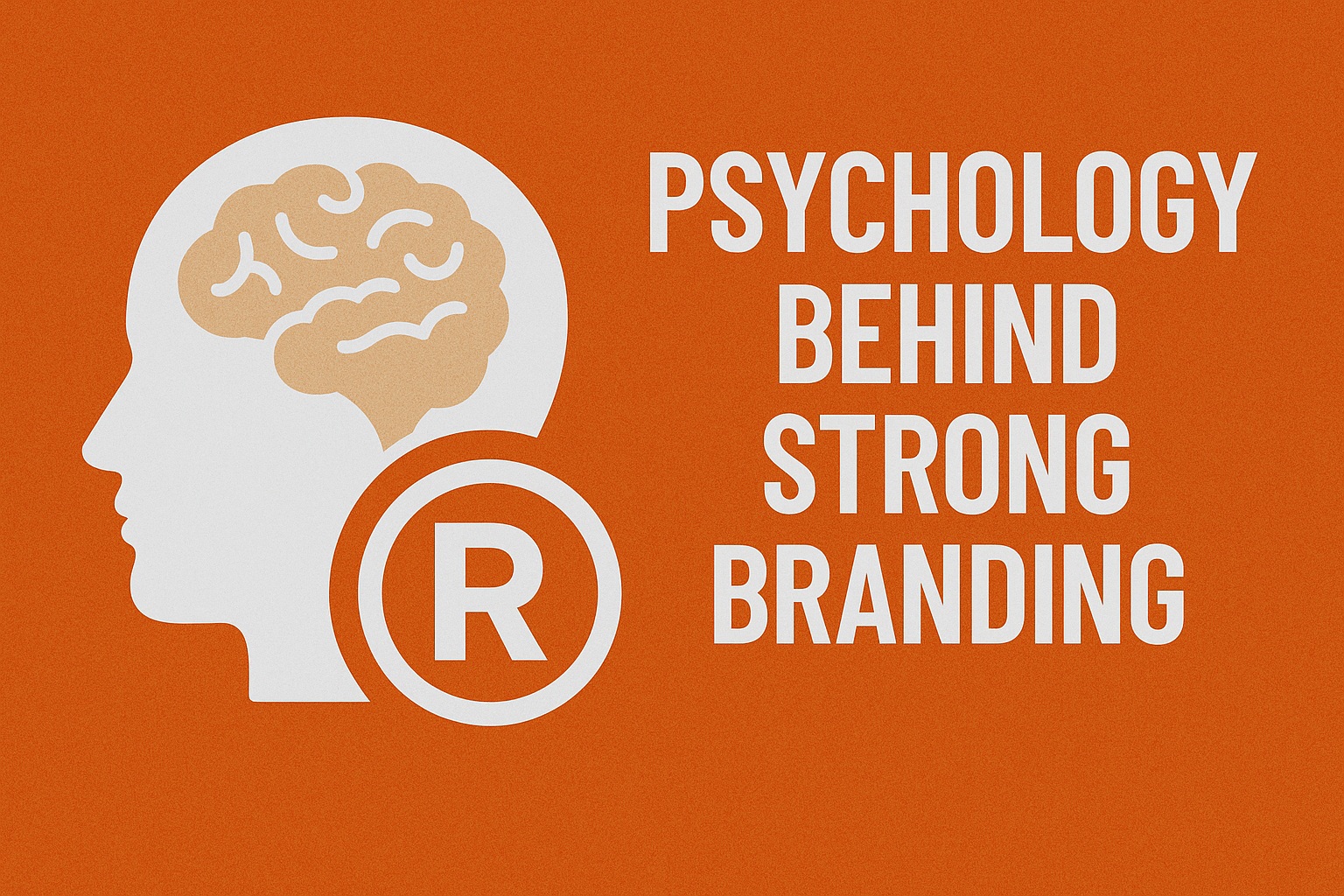With so many options available to consumers, it’s often the brands that create strong emotional connections that are the most successful. Understanding the psychology behind strong branding can help you create a brand that resonates deeply with your target audience.
In many cases, it’s not just the product or service that appeals to consumers, but the emotions, values, and experiences tied to the brand. A well-crafted brand can foster loyalty, increase recognition, and ultimately drive sales.
In this blog, we’ll explore the psychology behind strong branding and why people consistently choose brands they love.
The Power of First Impressions
First impressions matter, especially when it comes to branding. The initial encounter with a brand—whether it’s through a logo, an advertisement, or a product packaging—sets the tone for how a consumer will perceive it. Research has shown that people form opinions about brands in just milliseconds, and these early judgments are often emotional rather than rational.
This quick emotional response is why visuals, colours, and design are so crucial in branding. Colours, for example, evoke certain emotions and associations. Blue might make people feel calm and secure, while red can stimulate excitement and urgency. A professional brand agency Melbourne can help you align your brand’s visual elements with the feelings you want to evoke.
Trust and Familiarity
One of the most important psychological factors in branding is trust. People are more likely to choose brands they trust, and this trust is built over time through consistent messaging, quality, and customer experiences. When a brand delivers on its promises, it creates a sense of reliability and dependability that makes consumers feel safe in their purchasing decisions.
Familiarity also plays a major role in consumer choice. Humans are creatures of habit, and they tend to gravitate toward brands they know and recognise. This is why repetition and consistent brand messaging are key.
When you use the same colours, logos, and tone of voice across all platforms and touchpoints, you create familiarity that helps consumers feel comfortable with your brand.
The more often a consumer encounters your brand in a consistent and positive way, the more likely they are to trust it and become loyal to it. This is one reason why brands often invest heavily in advertising, sponsorships, and events to stay top-of-mind with their audience.
Emotional Connections and Brand Loyalty
People don’t just buy products or services; they buy the emotions and experiences that those products and services represent. This is where the psychology of branding becomes especially powerful. Strong brands create emotional connections with consumers, which leads to loyalty.
A brand that evokes positive emotions like happiness, nostalgia, or empowerment can create a sense of belonging for consumers. Think of the emotional connections people have with brands like Apple, Nike, or Coca-Cola. These brands are more than just products; they represent values and lifestyles that resonate with their target audience.
Social Proof and Influence
Humans are social creatures, and the decisions we make are often influenced by what others think and do. This is why social proof plays such an important role in branding. Social proof refers to the concept that people are more likely to trust and choose brands that are popular or endorsed by others.
This can take many forms, including customer reviews, testimonials, influencer partnerships, or the sheer number of people using a product or service. When people see others enjoying a brand or endorsing its values, they are more likely to want to be a part of that community. This is why influencer marketing has become such a powerful tool for brands in recent years.
The more your brand is seen as popular or approved by others, the more likely consumers are to perceive it as trustworthy and desirable.
Consistency Across All Touchpoints
Consistency is another key factor in successful branding. People like to know what they can expect from a brand, whether they’re interacting with it online, in person, or through an advertisement. A consistent brand experience—across your website, social media, packaging, and customer service—reinforces the perception of reliability and professionalism.
Brand Personality and Differentiation
Brand personality plays an important role in how consumers relate to a brand. Just as people have personalities, so too do brands. Whether your brand is friendly, sophisticated, adventurous, or rebellious, its personality is what helps it stand out in a crowded marketplace.
Strong branding is more than just a logo or tagline; it’s about creating a deep emotional connection with your audience. By understanding the psychology behind why people choose brands they love, businesses can craft brand identities that resonate with their target customers.
From building trust and familiarity to fostering emotional connections, the right branding strategy can make all the difference in driving consumer loyalty and brand success.

